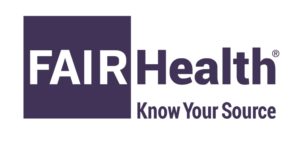To the Editor:
In commenting on the Feb. 14, 2017, article “Proposal to End ‘Surprise’ Billing Tied Up over Payment Formula,” we at FAIR Health first acknowledge and applaud the Georgia Legislature’s serious efforts to protect consumers from balance billing for emergency and surprise bills. But we also wish to clarify the role that FAIR Health and our data play in supporting such initiatives in Georgia and other states. Far from setting an “extremely high” benchmark for reimbursing providers, as one party in the debate was quoted as saying, FAIR Health does not offer or recommend any particular amount as a benchmark for medical fees, but instead provides neutral, objective market data based on the full range of amounts actually charged by doctors and hospitals and the rates actually allowed by insurers.

FAIR Health has been privileged to testify at a Georgia Senate hearing before state legislators who were considering consumer protection legislation. As a transparent, conflict-free, nonprofit organization, FAIR Health has been approached by many states to provide information in this context. Those states include Arizona, Florida, Idaho, Indiana, Nevada, New Jersey, New Mexico, Oregon, Tennessee, Texas, Utah and Washington. In Connecticut and New York, our data already serve as official reference points.
FAIR Health takes no position on what should be considered usual and customary charges or on the specifics of legislative proposals. Rather, we provide an array of current, neutral data points showing what physicians charge for specific services in geographically specific areas, as well as the aggregated, de-identified allowed amounts that insurers set as their maximum payment for particular services. Many jurisdictions choose from among these varied benchmarks to help support the administration of a wide variety of state health-related programs (e.g., workers’ compensation programs, auto liability programs, programs for disabled children and neurologically impaired newborns, dispute resolution programs and health plans for state government employees).

FAIR Health data are comprehensive and have great integrity. We apply statistical methodologies recommended and vetted by independent experts — for example, we employ standard statistical “outlier” methodologies that identify and exclude excessively high or low charges that would distort the distribution of charges. The FAIR Health repository of privately billed medical and dental claims is the largest in the country, with over 23 billion records nationwide from 2002 to the present, including 740 million from Georgia alone.
FAIR Health already plays an important role in Georgia by supporting the workers’ compensation fee schedule (now for the third year). FAIR Health data are licensed by hundreds of insurers and claims administrators nationwide. In addition to providing data to policymakers and researchers, we make the data available free of charge to consumers in English and Spanish on our award-winning consumer website, fairhealthconsumer.org and consumidor.fairhealth.org, where they can look up medical and dental costs for specific services in their own locales.
FAIR Health data reflect the marketplace, and for that reason have proved valuable to policymakers attempting to balance the interests of key stakeholders, including medical providers and insurers, while seeking to protect consumers from surprise billing.
Sincerely,
Robin Gelburd
President
FAIR Health

